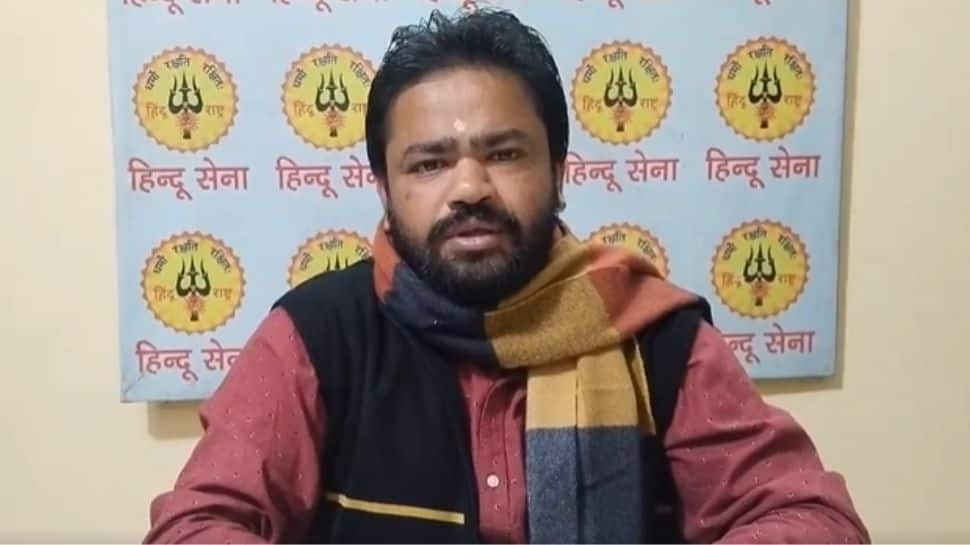 |
|
The ongoing legal battle surrounding the Ajmer Dargah, a revered Sufi shrine in India, has taken a significant turn with the acceptance of a petition filed by the National Hindu Army, led by Vishnu Gupta. This petition alleges the existence of an ancient Lord Shiva temple beneath the current structure, igniting a complex debate that intertwines religious beliefs, historical interpretations, and legal proceedings. The acceptance of the petition by the court marks a pivotal moment, signaling the potential for a protracted legal struggle and raising profound questions about religious heritage and the delicate balance of religious freedoms in India.
Vishnu Gupta, the president of the National Hindu Army, stands at the center of this controversy. His background reveals a journey deeply rooted in Hindu nationalist ideology. Beginning his involvement with the Shiv Sena's youth wing and later joining the Bajrang Dal, Gupta's trajectory highlights the evolution of his political and religious activism within the broader context of Hindu nationalism in India. His founding of the Hindu Sena in 2011 underscores his ambition and the growing influence of organizations advocating for Hindu causes. The claim that the Hindu Sena boasts 'lakhs of members' throughout India suggests a considerable mobilization of support, further amplifying the significance of the legal challenge to the Ajmer Dargah.
The petition itself alleges evidence of a pre-existing Lord Shiva temple at the site of the Ajmer Dargah, a claim vehemently contested by the Dargah Committee and other stakeholders. The legal process now involves a detailed examination of this evidence, which will likely include archaeological surveys, historical records, and expert testimonies. The court's decision to issue notices to the Dargah Committee, the Ministry of Minority Affairs, and the Archaeological Survey of India indicates the seriousness with which this claim is being treated. The upcoming December 20th hearing will be crucial in determining the next steps and setting the stage for potentially extensive investigation and debate.
Beyond the immediate legal implications, this case raises broader questions about religious pluralism and the preservation of historical sites in India. The very nature of the claim – a Hindu temple potentially underlying a revered Sufi shrine – exposes the intertwined and often contested layers of India's rich and complex religious history. The case is likely to bring to the forefront diverse perspectives on religious heritage, historical accuracy, and the delicate balance required to manage the sensitivities surrounding religious sites with potentially conflicting claims of ownership or historical significance. The outcome will not only have immediate legal consequences but could also significantly impact future disputes over the ownership and interpretation of religious sites in India.
The involvement of the Ministry of Minority Affairs underscores the government's role in navigating this sensitive issue. Balancing the rights and concerns of various religious communities is a significant challenge, particularly in a country as diverse as India. The government's approach to this case will likely set a precedent for how similar disputes are handled in the future. Furthermore, the Archaeological Survey of India's participation highlights the need for careful and impartial historical investigation to establish the veracity of the claims made. Their findings will be crucial in guiding the legal process and informing public understanding of the potential existence of a historical Shiva temple at the Ajmer Dargah.
The Ajmer Dargah itself is a site of immense religious and cultural significance, attracting pilgrims from across the world. The ongoing legal battle therefore carries implications that extend far beyond the immediate legal arguments. Any disturbance to the existing structure or the interpretation of its history could have profound consequences for religious harmony and the preservation of India's cultural heritage. The outcome of this case will be carefully observed not only within India but also by global communities interested in religious freedom, historical preservation, and the management of religious sites with potentially conflicting narratives.
Source: Who Is Vishnu Gupta? Hindu Sena Chief Claims Shiva Temple Once Stood At Ajmer Dargah
